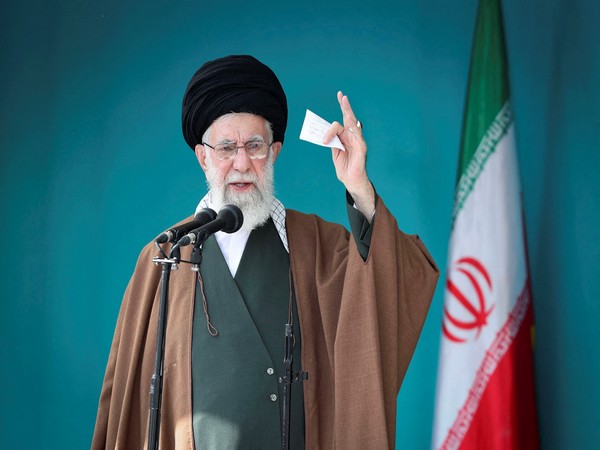Ayatollah Ali Khamenei, Iran’s supreme leader, has noted the country will embark on a tooth-breaking response to the United States and the Israeli government for their actions against the country and its allies, he said on Saturday.
The leader of the country was making the comments days after his adviser, Kamal Kharrazi, noted that the Iranian government still has a big capacity to produce nuclear weapons and they will deploy them at different instances if they there’s that are receiving continues as the fight with Isreal continues to linger. The adviser also disclosed that the country is planning to increase the amount of ballistic missiles the country has at its disposal.
The leader explained that if the threats that are being received continue to linger, the country will decide to modify the usage of the weapons it has at its disposal. The Kharrazi told the Lebanese broadcaster Al Mayadeen on Friday also confirmed that all the apparatus needed for building new weapons was available as the country has no single threat in that aspect.
He noted that the country has exercised caution when using weapons because of a religious ruling that was passed in 2003.
Gen. Mohammad Naeini, a spokesperson for Iran’s Revolutionary Guard, in a public statement on Saturday noted that the the country was prepared to take a decisive and strong response to the individuals and countries that were the enemies of land and part of the current aggression in the country. He confirmed that the steps to be taken will be strong and strategic beyond the comprehension of the enemies.
He noted that all the enemies of the country must be aware that when there is hostility or engagement, there must be a crushing response at all times.
The CIA Director William Burns in October confirmed that the US government had gotten reliable evidence that the government of Iran was building a nuclear weapon. He further noted that Iran could quickly, within a week or so, secure enough fissile material for an atomic bomb if it chose to, and there would be less time for the world to respond. Speaking on the Nuclear activities of Iran, the spokesperson of the State Department noted that there were concerns about the nuclear activities that were being performed by the Iranian country.
The spokesperson noted that the president had told all the persons concerned that the government was not letting the Iranian government acquire any Nuclear weapon as the country was ready to deploy all elements of national power to ensure they were not successful in the purchase of the weapon.
The spokesperson, while speaking, further noted that the U.S. intelligence community continues to assess that the supreme leader has not made a decision to resume its nuclear weapons program. He further declared that the country was taking any nuclear escalation in the Middle East seriously and adequate responses would be provided by the government of the US at adequate moments.
On Friday, the Pentagon disclosed that it has planned to deploy B-52 bombers, fighter jets, refuelling aircraft and Navy destroyers to the Middle East, which will serve as a readjustment to the military assets as the Abraham Lincoln carrier strike group country planning to end their operations in the region.
Pentagon spokesperson Air Force Maj. Gen. Patrick Ryder said in a statement that if the Iranian government makes any plan with its allies to target American personnel or interests in the region, the United States government will deploy all the powers available at its disposal to defend its people against any attack.
While responding, the Iranian government stated that the government had not planned to use any nuclear weapon since the operation was abandoned after Khamenei’s 2003 fatwa. On Thursday, Netanyahu said Israel had unprecedented freedom of action after the recent airstrikes against Iran.
Netanyahu noted that if they desired, they could get to any part of Iran if they wished; he also stated that the ultimate goal that was given to the Israel Defense Forces and the security branches was to prevent Iran from achieving a nuclear weapon.
Israel hit Iran with three waves of predawn strikes on military targets last Saturday in what U.S. officials and others had hoped would be the last shot in a hostile exchange between the two regional powers.
The latest attack from the Isreal Defence Force was undertaken weeks after Iran launched a barrage of missiles at Israel, which was named a response to the killing of leaders of Hamas and Iran-backed Hezbollah. The recent escalation of the hostilities is coming after the Oct. 7, 2023, terror attacks to fight the Lebanese militia and political group with which it had been trading blows for a year.
The comments made by Khamenei on Saturday were on the eve of the University of the 1979 storming of the American Embassy in Tehran. The response has also indicated that the responses by the Israeli government would go without an adequate response from the Iranian leaders and security forces.
In the first instance, the government of Iran had seen the possible attacks on its military facilities as a joke, but recent attacks have continued to raise concerns as they have started to voice increasingly belligerent rhetoric.
Hossein Salami, commander of the Islamic Revolutionary Guard Corps, threatened that the country would engage in an unimaginable response to the attacks that the Israeli government has conducted; the comments were part of different comments that have been made by Several Iranian officials separately.
Ali Fadavi, the deputy commander of the IRGC, confirmed that it was certain that the security forces of Iran were ready to respond to the attacks that the government of Israel has conducted. He noted that the country, for the past 40 years, has never left any attack without a response. He explained that the country has a large capacity and ability to engage all of the Zionist regime’s assets in a single operation.
Kharrazi, in a statement on Friday, noted that the belief and reliance it has had on Europe due to the diplomacy it has had has now collapsed, with it deteriorating daily.
He explained that in the matter of missile range, we have so far considered Western sensitivities, particularly those of the Europeans,” he said. “When they disregard our sensitivities, especially regarding the territorial integrity of the Islamic Republic of Iran, there is no reason for us to consider their concerns.
He further confirmed that the country was making efforts to ensure that the country makes efforts to ensure that the range of its missiles increases in a short time.
In 2015, Iran signed an agreement with President Barack Obama’s government. The deal, which was sealed with the US and other world powers, was meant to curb the Nuclear program of the country, which was done in exchange for billions of dollars in sanctions relief.
In what could be seen as a setback, in 2017, then-President Donald Trump withdrew from the plan, saying it did not curtail Iran’s ballistic missile timetable or the influence of Iran’s powerful proxies in the region. Since the U.S. exit, Iran has steadily blown through the constraints on its nuclear activities and blocked international inspectors from seeing some atomic sites.




